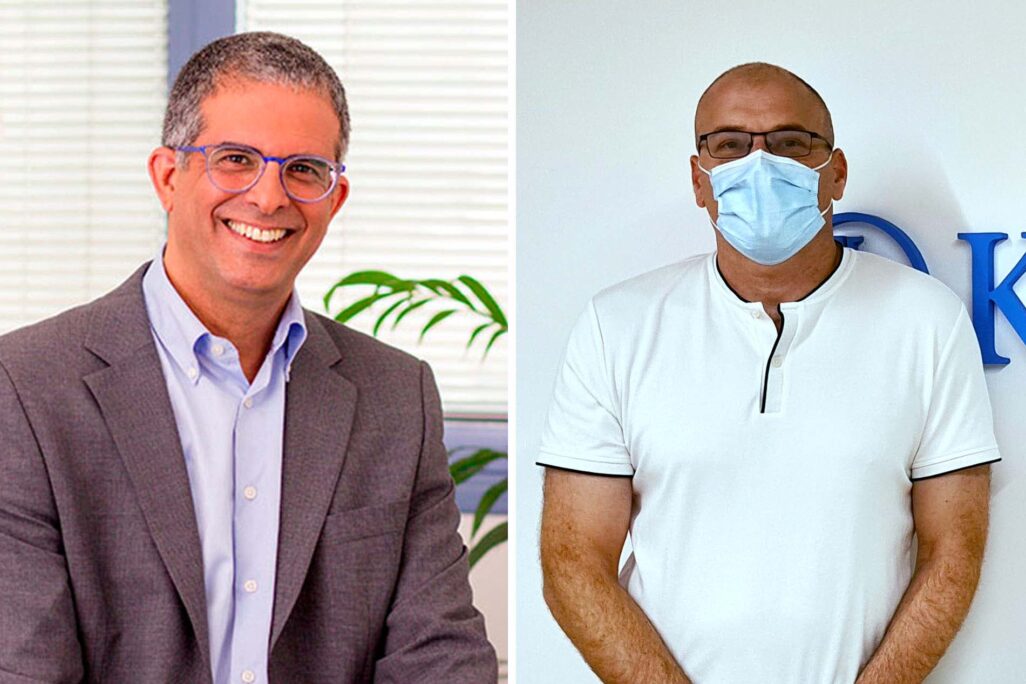
“Each life is unique” proclaims the wall of the cafeteria at Kamada. It is noon, and the Rehovot compound that houses the company's management offices and research laboratories is deserted. Many people are working from home, one of the company's guidelines to prevent the spread of corona.
The modest office hallways do not betray the dramatic events that have taken place here over the past six months. The Israeli pharmaceutical company is the first in the world to complete the production of the first dose of an antibody drug derived from human plasma able to treat corona patients.
This medication has already been successfully tested on hospitalized corona patients suffering from pneumonia. As of now, the drug is in the stages of expanding production and ongoing clinical development. Kamada, with its commitment to human life, is the source of a drug that could save many lives from a global epidemic.
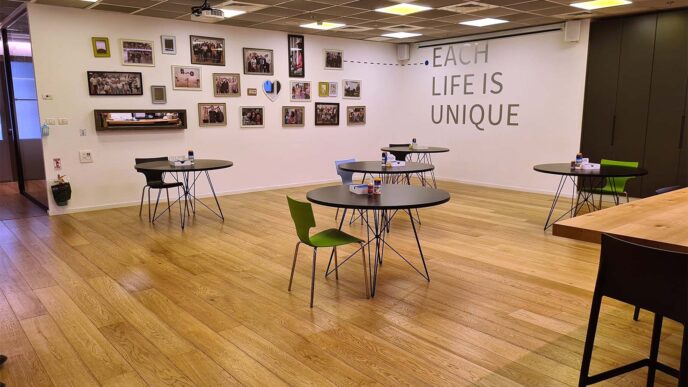
Kamada, which marks its thirtieth anniversary this year, specializes in the development and manufacture of medications and plasma products. These medications are based on plasma, the main component of blood, which contains, among other things, antibodies to bacteria and viruses. Kamada's technology makes it possible to purify specific antibodies and proteins from human plasma, and turn them into a medical product that helps people who need those antibodies.This technology, which is recognized in the medical world as effective and safe, is the basis of the drug developed for corona patients.
"We realized that something big was happening here”
Kamada operates exclusively in Israel. It was established in 1990 as a partnership between the Israeli businessman David Tzur, the Argentinian Hahn family and Kibbutz Beit Kama, whose pharmaceutical factory passed into the company’s ownership. A few years later, the kibbutz sold its share in the company. The factory, located near the kibbutz in the western Negev, currently employs 350 workers. The management offices and development laboratories located in the Science Park in Rehovot employ another 80 people. The company is traded on the Nasdaq and the Tel Aviv Stock Exchange.
The company, whose products are sold in over 25 countries, prides itself on two flagship products that have won the prestigious approval of the United States’ Food and Drug Administration (FDA). One of them is Galasia – which allows the delivery of an AAT protein via liquid infusion to chronic patients who have difficulty producing it themselves, and as a result suffer from severe lung disease. The second is a rabies antibody given in emergency rooms to patients who have been exposed to an infected animal, allowing the body to cope with the disease until the onset of the vaccine’s effects. The rabies antibody is also sold to the World Health Organization. In addition, Kamada produces serum for venom of snakes, vipers and adders for the Israeli Ministry of Health.
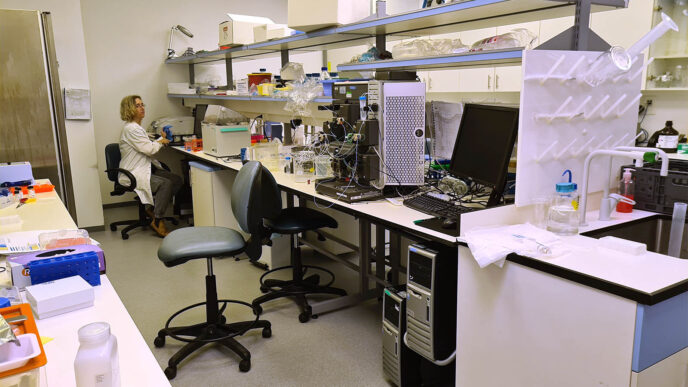
The company's CEO, Amir London, pinpoints the decision to meet the corona challenge somewhere around mid-February of last year. He explains that the company had already been developing an antibody treatment for the Zika virus over the past two years, but decided to pivot towards developing a corona treatment as the outbreak began.
"People from our team went to a conference in the U.S on the subject of Zika, and while they were there, the conference changed and they started talking about corona, because these are the same people who are involved in it – the same infectious disease specialists, the same experts,” London said.
"We realized that something big was happening here, and then, with Israeli audacity, we set our goal – we will be the first company in the world to complete production of a plasma-based antibody for corona,” London said. “When you are first in the world, it is a statement and it also is meaningful – you will produce the antibodies at an early stage, you will be able to make them accessible to patients. You will be able to work with the health ministries around the world from a leading position, receive the necessary advice and guidelines from them and move forward very quickly."
From that point onwards, the entire company began a complex race toward the goal, which required absolute focus and devotion.
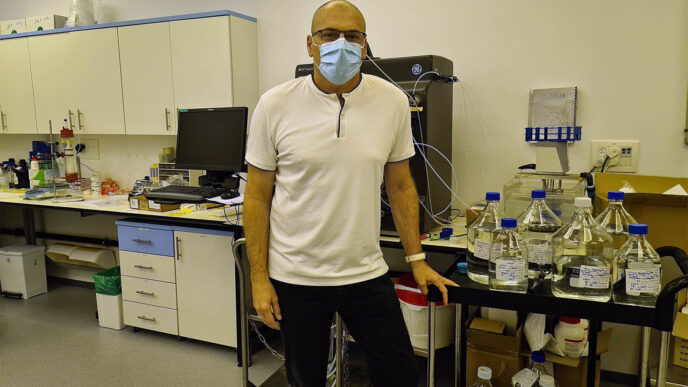
"We started making adjustments in one of the production lines in order to produce the corona antibody based on our existing technology. Although it is the same technology, the product is different, so we needed to define the specifications, work with the Ministry of Health and Magen David Adom to collect plasma from recovering patients, connect the leading doctors and hospitals in the country to this issue,” London explained.
"You allocate resources, you allocate focus, and meanwhile the hysteria in the country is growing. Lockdowns and quarantines are starting, people are coming back from abroad and going into quarantine, and we are very, very focused. We’ve put brakes on everything that is not a must,” he said.
"The small victories along the way help us create motivation"
In March, the first corona patients were diagnosed in Israel. In order to get started, it was necessary to wait for them to recover from the disease, and after another two weeks, collect plasma samples via Magen David Adom. Towards the end of April, the company entered the production process.
London explained the complexities of the production process, saying that it starts on a small scale, then moves onto producing samples that are tested over and over until a sample fit for human use is ready.
“You go through a lot of steps and you have to prove consistency, measure these things and quantify your abilities to produce the antibody, see that the antibody really neutralizes the virus,” he said. “We did all this working very closely with the Ministry of Health.”
The desired goal was achieved. In June, the production of a first product sample ready for patients. At the same time, the company signed an agreement with the American-Italian company Cadrion. As part of the agreement, Cadrion will collect plasma from recovering patients in the United States, a condition required for testing the product in the United States as well as to obtain potential future FDA approval.
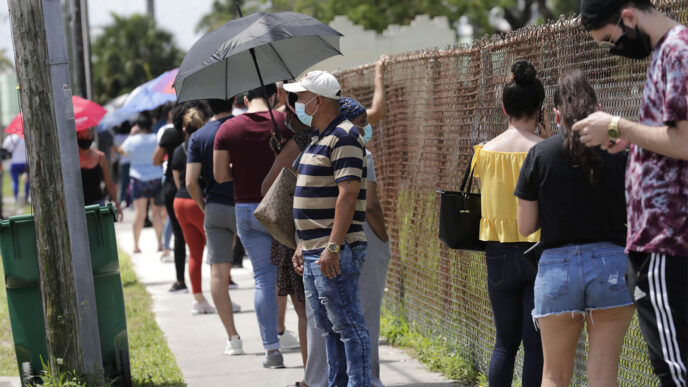
The next step was to initiate a clinical trial, which included 12 patients hospitalized with active pneumonia as a result of coronary heart disease. Two weeks ago, the company published the interim results of the trial, conducted at four hospitals in Israel: 11 of the 12 patients were released to home recovery. The improvement in symptoms began within 24 to 48 hours of receiving the antibody, and patients went home after an average of four and a half days after treatment began. The company is preparing for further trials, and at the same time has submitted an outline for a clinical program in the U.S to the FDA, and is waiting for feedback to move forward. More patients are expected to participate in the next trial.
"At a holiday staff meeting, which we held on Zoom of course, I announced that 11 people whose situation could have deteriorated will celebrate Rosh Hashanah with their families thanks to the speed with which we operated, and thanks to our quality and professionalism,” London said. “A lot of work is still ahead of us, but these small victories along the way help us create the motivation needed in a complicated period. Everyone experiences it in their own home, it is difficult on a personal, family and national level, and yet we manage to move this project forward.”
"For whoever is already infected, the vaccine is not relevant"
Most of the public discourse on medical response to the coronavirus focuses on vaccines, which raise hope for the final defeat of the virus’ spread. The Biological Institute in Ness Ziona, not far from Kamada, two months ago proudly announced progress in developing a vaccine for corona and received a well-publicized visit from Prime Minister Netanyahu. By contrast, Kamada's antibody development and successful experiments have not yet made headlines.
The company's Vice President of Clinical Development and Medical Director, Dr. Neve Tov, explained that the need for antibodies will also exist when there is a vaccine.
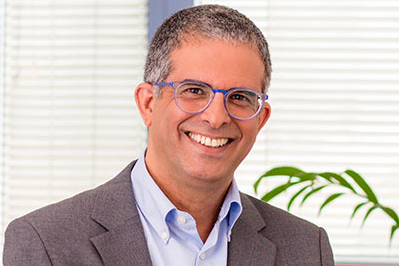
"It should be put into context that there are vaccines that will solve the problem for most people, but not for everyone. Antibodies are the immediate means to deal with exposure. In all previous models, such as jaundice, receiving antibodies immediately after infection, after the exposure instead of before, can prevent people from getting the disease,” Tov said.
"We also see this in the antibody we produce for rabies. A person who is exposed to the virus and is at risk of getting the disease will be vaccinated so that their immune system will produce antibodies, but it will take time for them to form, so at the same time, they must also receive our dose of antibodies,” Tov continued. “In the case of the corona, it’s similar. If a patient is in danger of a serious illness because their health condition is problematic, then they should get antibodies in parallel with the vaccine.”
Tov went on to say that there are certain groups of patients who cannot develop antibodies or who do not respond well to vaccines who will need the antibody treatment. In addition, there are people already at high risk of infection, such as medical workers, who will not necessarily be able to get the vaccine fast enough. This new antibody treatment would protect them for a period of about a few weeks.
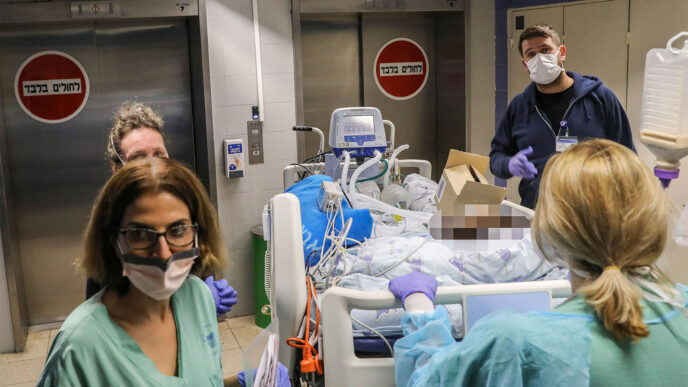
Beyond the potential prevention of infection for those exposed to the virus, Tov emphasizes the critical role of antibodies in assisting patients who are already hospitalized, whose condition may deteriorate.
"For whoever is already infected, the vaccine is not relevant. Even with existing treatments, giving people antibodies at the right time can allow them to recover faster and avoid further infection,” he said.
The emergence of the corona as a global pandemic has challenged some of the accepted norms in the world of drug development. The standard regulations for approving the use of new drugs takes several years, and on the other hand, the need has arisen for a quick solution that will make it possible to curb the epidemic, even at the cost of waiving some of the control and approval procedures. Such a waiver may raise concerns about the distribution of vaccines and unsafe drugs.
London fully agrees with the concern, but emphasizes that there are differences in the risk levels of each product.
"Vaccines are given to healthy people. If someone speeds up the development and goes for approval before the safety is proven almost absolutely, the danger is high,” he said.
"We are in a different situation, because we are dealing with a well-known technology. If you have recovered naturally, your body has developed antibodies, and your antibodies and many others’ will contribute to plasma that we know how to isolate and give to the patient. We do not manipulate the antibodies,” London explained. “There are other technologies that are based on manipulations, whether it's duplicating antibodies or producing vaccines with technologies that have not yet been tested, so the safety issue there must be unequivocally proven before starting treatment."
"We adapt ourselves to the situation and move fast"
Tov sees the role the company has taken on as a key to dealing with the difficulties and chaos that corona is creating. He observed that the sense of urgency and purpose drove the company’s workers to work hard during the last lockdown, even when individuals or even entire teams had to enter quarantine.
“When you leave work for the holidays and there is a lockdown, but you know you have a goal, and that is to bring this product to market as soon as possible, it is different from going into a lockdown with uncertainty,” Tov said. “I feel we are privileged to be engaged in this effort."
Dr. Tov emphasizes that the key to success is experience gained over the years, and working together.
"Our ability to be first in the world right now is based on the capabilities learned in the factory, production, research and development. It is a lesson learned from a great many failures,” he said. “It's not just the clinical field, everything has to interface together. We learn all the time, and that's the beauty of this thing – we adapt ourselves to the situation and move fast. That is not a trivial matter."
"We have to work as a team, this is one of the insights we have gained over time"
London grew up in Haifa and studied industrial engineering and management at the Technion. He has held a number of senior management positions in various companies in Israel and the United States, mainly in the fields of biopharmaceuticals, and has served as CEO of Israeli company Promedico, which imports, sells and distributes drugs. He joined Kamada in 2013 as Vice President of Business Development, and worked alongside David Tzur, the company's founder and manager since its inception. In 2015, he joined the company's management.
Tov grew up in Moshav Geulim in the Sharon region, and after military service in the submarine division, he applied to study medicine at the Technion. He began an internship in internal medicine, and at the same time earned a degree in research on the physiology of sleep apnea. In addition, he continued his internship in pulmonary medicine, and was the director of the respiratory unit at Bnei Zion Hospital in Haifa, and the deputy director of the internal medicine department. In 2007 he began advising Kamada, and in 2016 he took a full-time job at the company as Vice President of Clinical Development and Medical Director.
"I decided with Amir that it would be better to have a physical doctor on board at the company," he said. "I’ve enjoyed every moment since coming here.”
The choice to leave the hospital was not easy, but Tov feels that it was the right one.
“I had to choose between my commitment to the clinic and to teaching, between my commitment to the hospital, and continuing the work the company has been doing since 2007,” Tov said. “I made a decision that I wanted to continue my clinical research and promote it within the framework of Kamada. I maintain some degree of care for people in the clinic, so as not to ‘get out of shape,’ but I think my focus in those years should be to promote medicine from a wider stance, like developing a new medical product to market. This is exactly where my previous experience and also my research ability are required."
Upon joining the company, Tov established its clinical department. He has set up a team responsible for the operations of an extensive medical trial, that will also adhere to all the regulations required. In addition to the logistical side, Tov has prioritized the medical aspect, or “the ability to seek and prioritize ideas.”
“We come up with an idea, test it, gather the material, test why it works, how it works, and after we think about it, there is a broader discussion that deals with business aspects, patents, and the ability to develop it – what it takes to do it and whether we will meet those demands or not,” Tov explained.
From Tov’s perspective, the company’s ability to reach its goals lies in teamwork.
"Our work is made up of a lot of things and details on a day-to-day basis that need to lead and tie into the ends. It cannot be the work of an individual, one must work in a team, and that is one of the insights we have acquired over time."
So what's the forecast for next year, and is it possible to be optimistic? London and Tov believe so.
London explains that the treatment has two outlines for moving forward: the first is continued clinical trials, and the second is “mercy treatments,” or prescribing drugs that have not received official approval, usually to critically ill patients, with approval from the Ministry of Health.
"The treatment will be increasingly available in Israel, but not on a very large scale, because we are still building our production capacity," he said. "At the moment it is not yet an approved drug, but there are medical prescriptions that allow doctors to prescribe a drug that has not passed all the approval stages.”
“It is important to understand that for a patient receiving the treatment, it does not matter in what framework he received the treatment,” London continued. “The 11 patients who received the treatment as part of the clinical trial, their condition improved significantly and they were released from the hospital.”
Kamada are also proud of the Israeli character of the company no less than the development of its important medications.
"The factory was established here in Israel and exists here, and we do a lot of things for Zionist and chalutzic motives," said London. "There is a reason why we function in the south, and we are not ashamed of it, it is a kind of good old Zionism. There is real modesty in how our offices and our vehicles look, it’s part of our worldview. This along with a very strong connection to the Israeli market and the Israeli public."






